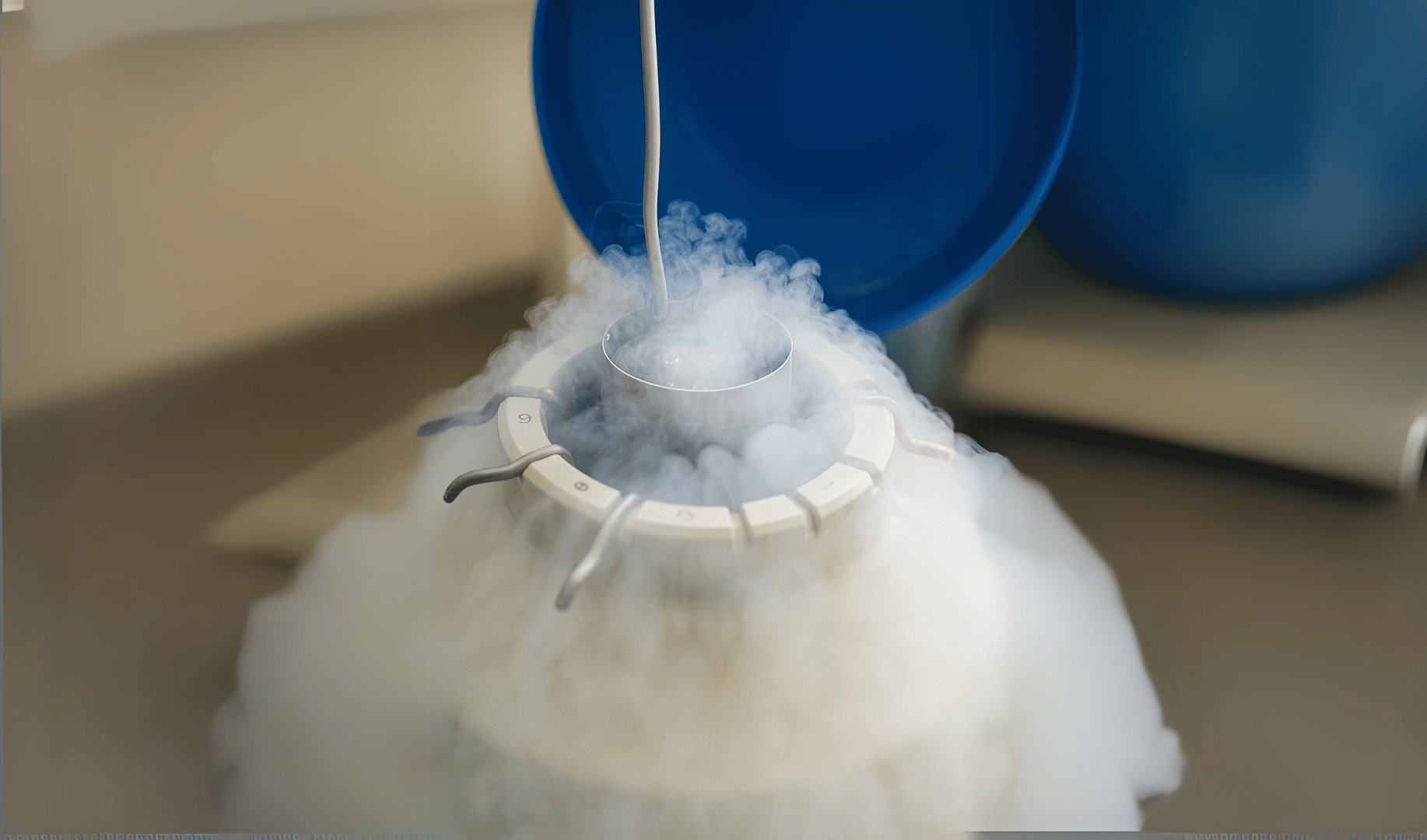The freezing of eggs, semen, or embryos—also called cryopreservation—has become a reliable medical tool for preserving fertility. But when is the right time? And why are more and more people choosing to do it?
In this blog, we address the main medical, social, and emotional reasons to consider this option, debunk misconceptions, and give you clear information to make an informed decision.
What is cryopreservation?
Cryopreservation is the process by which reproductive cells (eggs, sperm, or embryos) are frozen at extremely low temperatures to maintain their viability over time, without losing their potential to be used in a future reproductive treatment.
This procedure is performed with cutting-edge technology (like vitrification), which has proven to be safe and effective, with high cell survival rates upon thawing.
When is the best time to freeze?
Although anyone of reproductive age can consider preserving their gametes, the ideal age to freeze eggs is before 35, when oocyte quality is optimal. In the case of semen, the impact of age is less, but there is also a progressive decline in sperm quality over time.
It is recommended to freeze if:
You are prioritizing studies, a professional career, or personal projects.
You are not yet ready to be a mother or father, but you don’t want to close that possibility.
You do not have a partner and wish to start a family later.
You have been diagnosed with a medical condition that could affect your fertility (like cancer, endometriosis, autoimmune diseases, etc.).
You are going to undergo surgeries or treatments that compromise ovarian or testicular function.
You are in an in vitro fertilization treatment and want to preserve embryos.
The biological clock and social pressure
Many people feel the weight of the “biological clock” as they approach their 30s or 40s. Women, in particular, face a progressive decline in their ovarian reserve with age, which can cause anxiety when they don’t feel ready to have children at that moment.
Cryopreservation allows you to pause that pressure and regain control over your reproductive timeline. It is not a surrender; it’s a strategy: “I want to be a mother/father, but on my own terms.”
Why are more and more people deciding to freeze?
In recent years, cryopreservation has ceased to be a practice reserved only for oncology patients. Today, it is a common tool among young professional women, men who want to secure their future fatherhood, and couples who want to plan with freedom.
The number of people preserving their fertility has grown steadily. This is due to greater awareness of the impact of age, advances in medical techniques, and the real possibility of conceiving later with one’s own eggs or sperm in good condition.
Do you have doubts about whether this is the best time for you?
At Fertidonors, we offer a free medical consultation and guidance, where we evaluate your case and answer your questions with complete confidentiality.
Preserving is deciding. And deciding is power.



